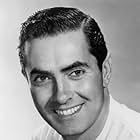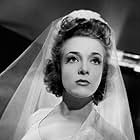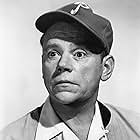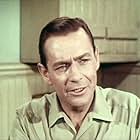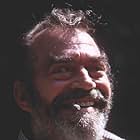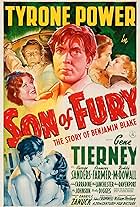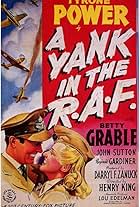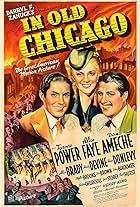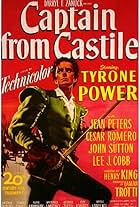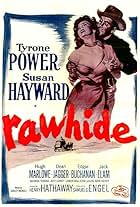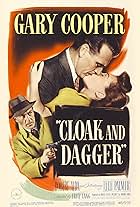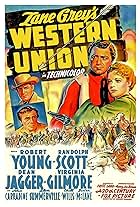IMDb RATING
5.9/10
1.4K
YOUR RATING
American soldiers stranded in the Philippines after the Japanese invasion form guerrilla bands to fight back.American soldiers stranded in the Philippines after the Japanese invasion form guerrilla bands to fight back.American soldiers stranded in the Philippines after the Japanese invasion form guerrilla bands to fight back.
Micheline Presle
- Jeanne Martinez
- (as Micheline Prelle)
Robert Patten
- Lovejoy
- (as Bob Patten)
Miguel Anzures
- Native Traitor
- (uncredited)
Sabu Camacho
- Bo
- (uncredited)
Erlinda Cortes
- Partisan
- (uncredited)
Cris de Vera
- Japanese Officer
- (uncredited)
Rosa Del Rosario
- Partisan
- (uncredited)
Maria del Val
- Señora Martinez - the Aunt
- (uncredited)
Vic Diaz
- Japanese General
- (uncredited)
Arling Gonzales
- Radio Operator
- (uncredited)
Fred Gonzales
- Radio Operator
- (uncredited)
Eddie Infante
- Col. Dimalanta
- (uncredited)
Storyline
Did you know
- TriviaThis movie was filmed just prior to the outbreak of the Korean War in June of 1950, and used American warships to portray Japanese ships. One such ship, the U.S.S. Orleck (DD 886), exists to this day after serving in the Korean War, the Vietnam War and being sold for a while to the Turkish Navy, and is permanently docked in Lake Charles, LA, where it serves as a museum.
- GoofsWhen setting the sail early in the movie, Power's character refers to a halyard as a sheet. No real sailor would make such an error.
- ConnectionsEdited into All This and World War II (1976)
Featured review
Not a bad movie, really. Colorful, exotic locations, educational, some interesting combat scenes. But coming from the director of "Metropolis" and "M"?
It reminds me of an anecdote told by the psychologist who wrote "The Three Christs of Ypsilanti." That's a psychiatric hospital in Michigan. Three patients claimed to be Jesus Christ. The psychologist was watching a film with the one named Louie. Adlai Stevenson, then Governor of Illinois, appeared on the screen. "That's me," cried Louie, "I'm Adlai Stevenson." The psychologist replied, "I thought you were Jesus Christ." "I am," said Louie, "I'm Jesus Christ too -- but I've got to make a living."
Fritz Lang must have had some similar motive for making this rather routine war film. It has every cliché in the book. The romance thrown into the middle of the muddle. The cavalry riding to the rescue at the last possible moment. The acting of the principals is at par, but some of the bits are played by people who seem to have had no training in inducing a suspension of audience disbelief.
The best scene in the film has Tom Ewell (in an uncommonly dramatic part) trying to hide from the Japanese under a rotting log. His bare feet are on an ant hill and soon his skin is crawling with stinging ants while he bites his tongue and prays.
The best performance is given by the Japanese officer. He's great. Sinewy, dapper, ruthless, ironic. Speaking to Michelline Presle, who has been aiding the guerrillas -- "You rike Americans with WHITE FACES, like boiled pork." Marvelous line. (That bleached skin, like blue eyes, is an evolutionary anomaly confined to northwestern Europe.) The guy is fascinating to watch physically, in the way that Jack Palance is.
Minor error. Ty Power and Tom Ewell are reporting on the position and movements of two Japanese destroyers (actually, they look like Geary-class American ships). Power gives the info on the ships to Ewell next to him, who relays it by phone to a radio operator who encodes and transmits it. But the operator isn't sending information on the location of the ships. He keeps sending the word "news" over and over, interspersed with a couple of letter "b"s.
It is not, as I say, a bad movie. It's just done rather by the numbers. A far better job dealing with our defeat in the Phillipines was done by John Ford in "They Were Expendable." This film is worth watching as a description of the very real guerrilla movement that developed in the Islands after that initial defeat.
It reminds me of an anecdote told by the psychologist who wrote "The Three Christs of Ypsilanti." That's a psychiatric hospital in Michigan. Three patients claimed to be Jesus Christ. The psychologist was watching a film with the one named Louie. Adlai Stevenson, then Governor of Illinois, appeared on the screen. "That's me," cried Louie, "I'm Adlai Stevenson." The psychologist replied, "I thought you were Jesus Christ." "I am," said Louie, "I'm Jesus Christ too -- but I've got to make a living."
Fritz Lang must have had some similar motive for making this rather routine war film. It has every cliché in the book. The romance thrown into the middle of the muddle. The cavalry riding to the rescue at the last possible moment. The acting of the principals is at par, but some of the bits are played by people who seem to have had no training in inducing a suspension of audience disbelief.
The best scene in the film has Tom Ewell (in an uncommonly dramatic part) trying to hide from the Japanese under a rotting log. His bare feet are on an ant hill and soon his skin is crawling with stinging ants while he bites his tongue and prays.
The best performance is given by the Japanese officer. He's great. Sinewy, dapper, ruthless, ironic. Speaking to Michelline Presle, who has been aiding the guerrillas -- "You rike Americans with WHITE FACES, like boiled pork." Marvelous line. (That bleached skin, like blue eyes, is an evolutionary anomaly confined to northwestern Europe.) The guy is fascinating to watch physically, in the way that Jack Palance is.
Minor error. Ty Power and Tom Ewell are reporting on the position and movements of two Japanese destroyers (actually, they look like Geary-class American ships). Power gives the info on the ships to Ewell next to him, who relays it by phone to a radio operator who encodes and transmits it. But the operator isn't sending information on the location of the ships. He keeps sending the word "news" over and over, interspersed with a couple of letter "b"s.
It is not, as I say, a bad movie. It's just done rather by the numbers. A far better job dealing with our defeat in the Phillipines was done by John Ford in "They Were Expendable." This film is worth watching as a description of the very real guerrilla movement that developed in the Islands after that initial defeat.
- rmax304823
- Nov 13, 2004
- Permalink
- How long is American Guerrilla in the Philippines?Powered by Alexa
Details
- Runtime1 hour 45 minutes
- Aspect ratio
- 1.37 : 1
Contribute to this page
Suggest an edit or add missing content

Top Gap
By what name was American Guerrilla in the Philippines (1950) officially released in India in English?
Answer








